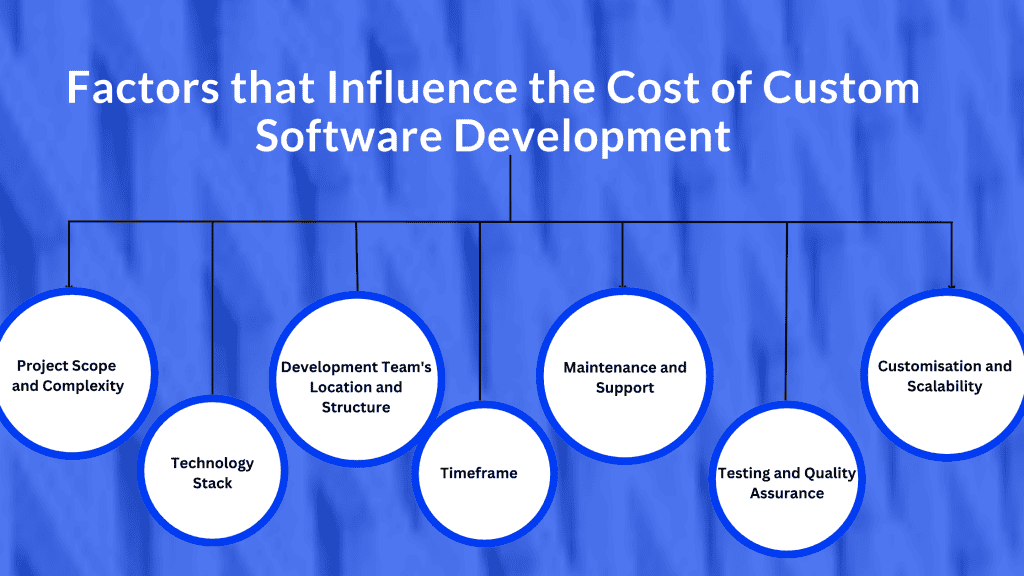
When businesses consider partnering with custom software development agencies, one of the primary concerns is the cost involved. Understanding the various factors that influence expenses can help organizations prepare better and make informed decisions. This article explores the key elements that determine the cost of software development services.
1. Project Scope and Complexity
The scope of the project is the foundation that defines the cost. A simple application with basic features will be considerably cheaper than a complex software system that requires advanced functionalities. The complexity not only involves the features but also the integration with other systems, the use of cutting-edge technologies like AI, and the need for robust security measures. More complex projects require more hours of work, which in turn, increases the cost.
2. Technology Stack
The choice of technology also plays a crucial role in determining the cost. Some technologies are more expensive to work with due to licensing fees, developer skills scarcity, or the complexity of the technology itself. For instance, developing a software solution using an open-source framework might be less costly compared to using a proprietary software framework.
3. Development Team’s Location and Structure
The geographical location of the software development team can significantly impact the overall cost. For example, custom software development companies based in North America or Western Europe typically charge more than those in Eastern Europe or Asia due to the difference in living costs and wages. Additionally, the team’s structure, including the number of developers, project managers, UX/UI designers, and quality assurance professionals also influences the cost.
4. Timeframe
The project’s timeline is another critical factor. If you need a project to be completed quickly, it may require more resources to speed up the development process, which increases the cost. On the other hand, a flexible timeline can reduce the pressure on resources, potentially lowering the cost.
5. Maintenance and Support
Software development doesn’t end at deployment; ongoing maintenance and support are essential for the software’s long-term stability and scalability. Regular updates, bug fixes, and support for new operating systems can add to the total cost. Some software development services include maintenance in their packages, while others charge it separately.
6. Testing and Quality Assurance
Ensuring the software is bug-free and fully functional can often require substantial investment in testing and quality assurance. The extent of testing needed depends on the complexity of the project and the potential impact of software failure. Investing in thorough testing initially can help avoid costly fixes and patches down the line.
7. Customisation and Scalability
The level of customization required by the client also affects the cost. Tailor-made solutions are typically more expensive than off-the-shelf software because they are built from scratch and designed to meet specific business needs. Furthermore, if the software needs to be scalable to handle increasing amounts of work or numbers of users, it requires additional architecture and development work, adding to the cost.
Conclusion
Understanding the factors that impact the cost of services in software development can help businesses plan and budget more effectively. By considering the project scope, technology stack, team location, timeframe, maintenance, testing, and customization needs, organizations can negotiate better with custom software development companies and ensure that the final product aligns with both their requirements and budget constraints. By approaching this investment thoughtfully, companies can maximize their return on investment in custom software solutions.
